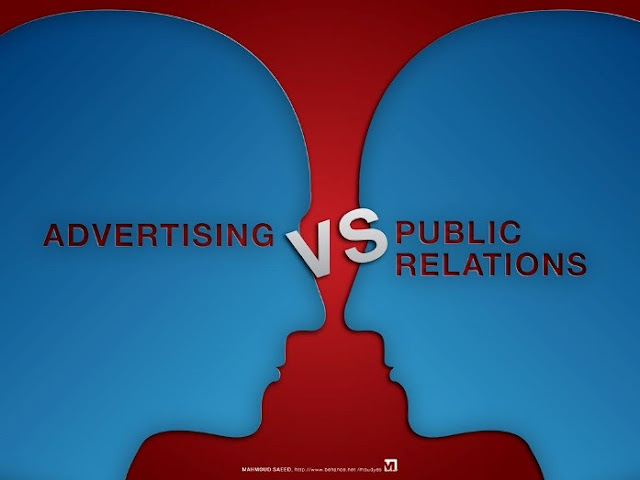Advertising vs Public Relations
Media Relations, Healthcare Public Relations, Entertainment PR firms, Healthcare Public Relations, Communication Agency are all necessary for the survival of a business. Publicizing and advertising are two totally different businesses, despite the fact that they're normally mistaken for each other. To comprehend the distinctions, consider 10 unique circumstances and how you may move toward them distinctively through publicizing or advertising.
1. Paid Space or Free Coverage
• Advertising: The organization pays for the advertisement space or broadcast appointment and knows precisely when the promotion will air or be distributed.
• Public relations: Your responsibility is to get free exposure for the organization. From news gatherings to public statements, you're centred around getting free media introduction for the organization and its items or administrations.
2. Innovative Control Vs. No Control
• Advertising: Because you're paying for space, you have authority over what goes into that promotion and what it looks like or sounds.
• Public relations: You have no power over how the news media presents your data—on the off chance that they choose to utilize your data by any means. The news media isn't committed to cover your occasion or distribute your public statement since you need them to do as such.
3. Timeframe of realistic usability
• Advertising: Because you pay for space or broadcast appointment, you can run your advertisements again and again for whatever length of time that your spending plan permits. A promotion by and large has a more drawn out time span of usability than a solitary official statement.
• Public relations: You present an official statement about another item, a newsworthy occasion, a news gathering, or a pattern story just a single time, and the PR introduction you get is coursed just a single time. A columnist won't distribute a similar data three or multiple times.
4. Shrewd Consumers
• Advertising: Consumers realize when they're perusing an ad that somebody is attempting to sell them something.
• Public relations: When somebody peruses a news story expounded on your item or perspectives inclusion of your occasion on TV, they're seeing something you didn't pay for with promotion dollars. The open perspectives it uniquely in contrast to it would a paid ad in light of the fact that your data has outsider support—its saw by the news media to be of some worth.
5. Innovativeness or a Nose for News
• Advertising: You get the opportunity to practice your imagination in making new advertisement battles and materials.
• Public relations: In advertising, you must have a nose for news and have the option to create buzz through different media sources. You likewise practice your innovativeness, however you do as such by thinking of thoughts and creating composed materials the news media finds captivating.
6. In-House or Out on the Town
• Advertising: If you're working at an advertisement organization, your fundamental contacts are your colleagues and the office's customers. In the event that you purchase and plan advertisement space for the benefit of the customer, at that point you'll additionally cooperate with media sales reps.
• Public relations: You cooperate with the news media and create associations with editors, news executives, and columnists. You're in steady touch with your contacts at print distributions, communicate media, and computerized outlets.
7. Target Audience or Hooked Editor
• Advertising: You're searching for your intended interest group and publicizing in like manner. You wouldn't publicize a ladies' wellbeing item in a men's games magazine.
• Public relations: You should have an edge and snare to get editors or news chiefs to utilize your data for consideration in an article, or to cover your occasion. It must be significant and existing apart from everything else.
8. Restricted or Unlimited Contact
• Advertising: Some industry masters have contact with the customers. Others, similar to marketing specialists or visual originators, may never meet with a customer.
• Public relations: In advertising, you are obvious to the media. Additionally, PR geniuses aren't constantly approached for the uplifting news. In the event that there was a mishap at your organization or approaching case, you may need to give an announcement or on-camera meeting to writers, since you are the representative for the organization.
9. Unique Events
• Advertising: If your organization supports an occasion, you wouldn't have any desire to take out an advertisement giving yourself a gesture of congratulations for being such an incredible organization. This is the place your PR division steps in.
• Public relations: If you're supporting an occasion, you can convey an official statement and the news media may get it and give you positive press presentation.
10. Composing Style
• Advertising: Buy this item! Act now! Call today! These are everything you can say in a promotion. You need to utilize those activity words to spur individuals to purchase your item.
• Public relations: You're carefully writing in a straightforward news design—who, what, where, when, and why. Any barefaced business messages in your correspondences will be altered out by the media—or its quality may prevent them from needing to manage it.




Comments
Post a Comment